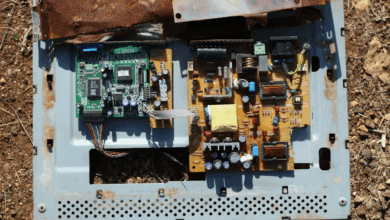
A Private Medical Practice Must Have Strong Cybersecurity
As someone who’s running their own private practice, it’s not going to be malpractice that can make you end up in hot water, but you can also expect to get into a lot of trouble if you’re a victim of a cybercrime. Specifically, if you’ve been targeted and a hacker was able to successfully access your records and info, and there’s proof there was little to no cybersecurity in place (meaning more than a strong password), the consequences are enormous.
Believe it or not, small businesses are such a massive target, and the bigger target is the small medical practices just like yours. While you might see ads left and right for cybersecurity, it is something that’s actually needed and can’t be skipped out on. But it’s not just that; it’s medical devices, too, and these are becoming far more common for medical practices to use for their patients.
But what can you do? Why does it matter? Well, here’s exactly why it’s so important to have strong cybersecurity for your medical practice.
Protecting Patient Data
One of the primary reasons cybersecurity is critical in private medical practices is to safeguard patient data. You know how you’re supposed to have a secure system, including in your office for records? Well, that’s why. Medical records contain highly sensitive information, including personal details, medical histories, and financial information. A breach can lead to identity theft, financial fraud, and significant privacy violations. Plus, data brokers and hackers would do anything to have this stuff, which is why you’re their biggest target! But on top of that, you also need to keep in mind that patients trust their healthcare providers to keep their information secure, and any breach can severely damage this trust.
There’s Dangers of Hackers Accessing Patient Medical Devices
While medical device companies will use companies like Blue Goat Cyber to protect their device, this might not always be enough, and you still need to have an additional layer of security for patient devices. While yes, most companies will have a layer of protection, in order to make sure you’re not violating anything, you also need to have a layer of security. But why is this so important for patient medical devices?
Nowadays, most medical devices, such as pacemakers, insulin pumps, and monitoring systems, are now connected to the internet to facilitate remote monitoring and data collection. The whole point is so that you can have access to this information to help your patient. While this connectivity improves patient care, it also opens up new avenues for cyberattacks.
Hackers gaining control of medical devices can have dire consequences. They could potentially alter device settings, leading to incorrect dosages, malfunctioning equipment, or even life-threatening situations.
For example, manipulating a pacemaker’s settings could disrupt a patient’s heart rhythm, while tampering with an insulin pump could result in improper insulin delivery. It’s not always about stealing data but also about intentionally trying to harm someone, too.
Maintaining Trust and Reputation
It’s going to be more than anger when your patients find out that their information has been compromised; they’re going to lose all trust in you. Now, you have to keep in mind that trust is the cornerstone of the patient-provider relationship. A data breach can erode this trust, leading to patient attrition and damage to the practice’s reputation.
It’s a fast way to get your business destroyed. In a competitive healthcare landscape, maintaining a strong reputation is crucial for attracting and retaining patients. However, overall, demonstrating a commitment to cybersecurity reassures patients that their information is safe and enhances the practice’s credibility.
It’s About Being Compliant
You have to keep in mind that the HIPPA policy isn’t only about keeping patient information private in a social setting. It also means protecting the information in any way possible, and that technically means via cyberspace, too. It’s no joke, and it’s not something to tread lightly on, as these regulations mandate the protection of patient information and impose severe penalties for non-compliance. So that’s why robust cybersecurity measures help practices comply with these regulations, avoiding legal repercussions and ensuring that patient data is handled appropriately.
Safeguarding Against Financial Loss
If you get hit with an attack, you can expect to be hit with such a massive financial loss it’s going to harm your business more than you could even imagine. The costs associated with a data breach include not only the immediate expenses of responding to the incident but also potential legal fees, regulatory fines, and the loss of business due to reputational damage. This is exactly why implementing strong cybersecurity measures can help prevent these costly incidents and protect the financial health of the practice.






